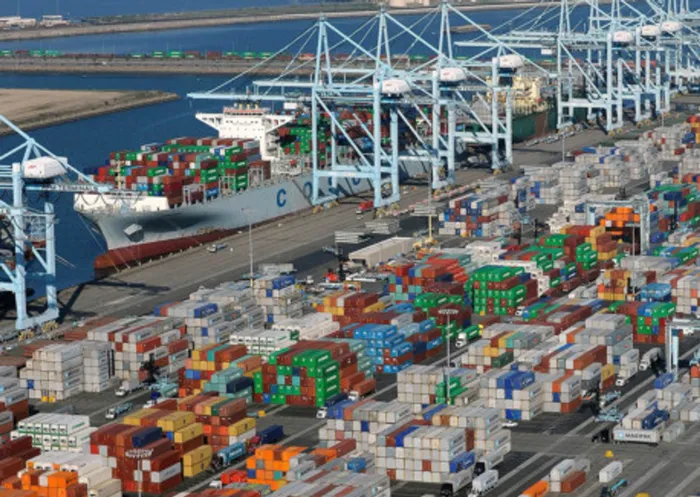
File photo: Bob Riha, Jr File photo: Bob Riha, Jr
Durban - The government’s much-vaunted plan to grow South Africa’s shipping industry has hit a major snag, with hundreds of jobs recently being shed instead of created.
Major role-players have laid the blame squarely at the door of the government, saying red tape was hindering progress and tying up R8 billion worth of orders.
“We want jobs to be created, but jobs are being lost,” Prasheen Maharaj, the chief executive of Southern African Shipyards, said yesterday.
Speaking at a panel discussion at the Maritime Transport Service Delivery Stakeholder Imbizo at the Hilton Hotel, Maharaj said shipping companies had shed 600 jobs this year.
“Let’s put our patriotic caps on and find a way to stop the haemorrhaging of jobs… We as government and business leaders are failing workers by not creating sustainable development.”
He said if the government expedited and streamlined its procurement processes, “we can immediately create jobs” and South Africa could see the biggest shipping boom in years.
In August, the Daily News reported that Durban was poised to become a player in the global shipbuilding industry with a R1.4bn contract awarded to Southern African Shipyards to build nine tugboats, including one of the world’s most powerful tugs.
The Transnet contract was seen as a boon for black empowerment as the company had a 60 percent black ownership.
At the time, Maharaj said: “For every direct job we create there will be six others created.” He added that for the first time in 20 years the industry was “looking bright”.
But he cautioned then that the government needed “to create an enabling environment for companies” to be able to compete with international companies.
At yesterday’s imbizo, low oil prices were cited as another contributing factor in job losses.
In another panel session, Mike Halls of the South African Institute of Marine Engineers and Naval Architects said ports needed to expand as ships were getting bigger, which increased the logistical needs of the ports.
He also lamented the fact that a ship could be in dry dock for repair in South Africa for up to seven days.
This cost about R473 924 a day and a long stay in a dry dock deterred the owners from wanting to return to the country, he said.
The keynote speaker, Deputy Transport Minister Sindisiwe Chikunga, said the maritime sector was a government priority, evidenced by the fact that it was now seen as one of the key points in the implementation of the National Development Plan through Operation Phakisa.
A study on the economical potential of South Africa’s oceans had shown that the sector could add as much as R177bn to the GDP and create an additional one million jobs over 20 years, Chikunga said.
“The public sector also recognises that without the private sector’s full participation and engagement in the process, none of the aspirations would be realised.
“On our part as government, we have undertaken to streamline our processes in order to make it easier for business to do what it needs to do... We shall get some things wrong and we shall get some things right as we continue to learn and improve on how best we can co-create a vibrant maritime oceans economy.”
Daily News